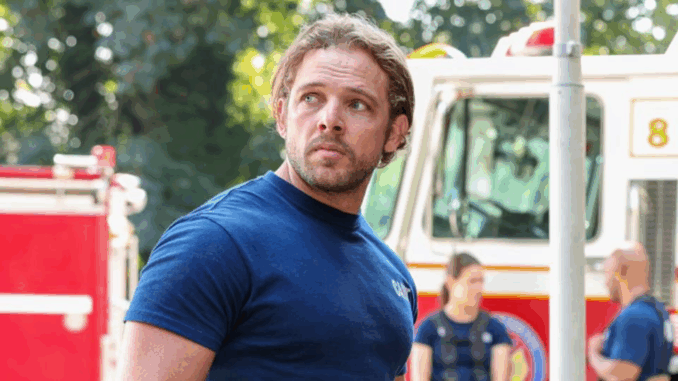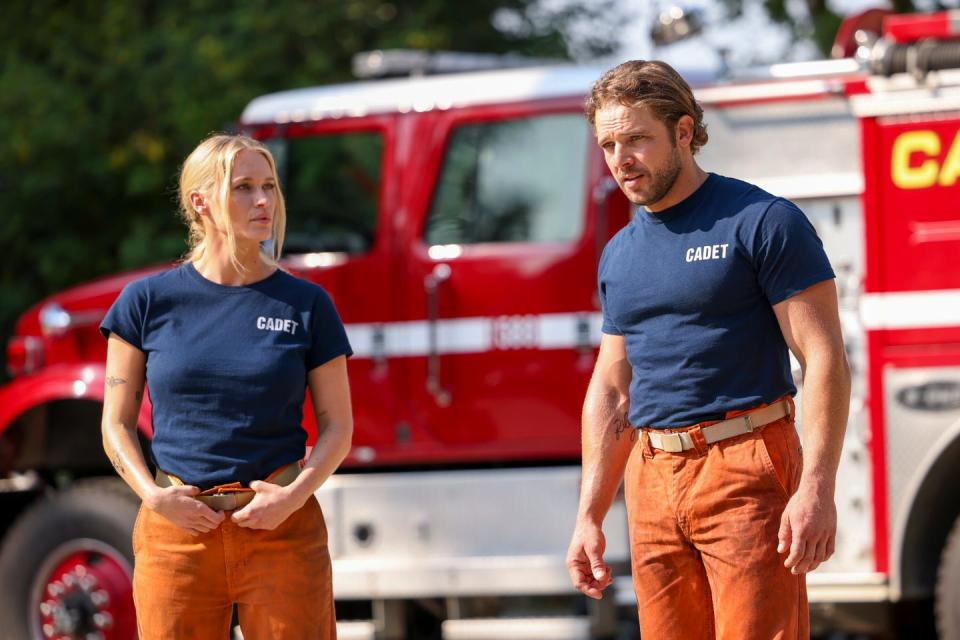
More Than a Role — A Vision
To many, Max Thieriot is a recognizable face — a gifted actor with emotional range and leading-man charisma. But behind the camera, Max is evolving into something even more formidable: a visionary director. One whose creative instincts were forged not by formal training, but by years of quiet observation, relentless learning, and gut intuition.
From his earliest days on screen to his current role as co-creator of Fire Country, Max has always had one eye on the lens. Now, he’s stepping into the director’s chair not just to call shots — but to craft meaning.
“Acting shows you the soul of a scene,” Max once said. “But directing lets you build the bones.”
The Seeds of a Director: Watching and Listening
Long before Max directed his first episode, he was studying silently on set. As a young actor in films like Catch That Kid and Jumper, he paid close attention to how shots were framed, how scenes were blocked, how edits shaped emotion.
While many actors disconnected between takes, Max asked questions. Why that angle? Why that lighting shift? How do you pace this beat?
By the time he joined Bates Motel, Max was already known among the crew as “the one who watches everything.” That curiosity became the bedrock of his directorial instincts.
First Time in the Director’s Chair

Max’s directorial debut came during SEAL Team, where he stepped behind the camera for one of the show’s most emotionally demanding episodes. Directing friends and co-stars was no easy task, but Max handled it with humility, preparation, and emotional intelligence.
“The camera is honest,” he said. “If your set isn’t safe, your actors can’t be vulnerable.”
His debut was praised for its restraint, pacing, and character intimacy — qualities now synonymous with Max’s style.
Fire Country: Building From the Ground Up
With Fire Country, Max wasn’t just directing a show — he was helping build it from scratch. That meant guiding the visual language of the series: how nature is framed, how fire is captured, how intimacy and scale co-exist.
His episodes are marked by cinematic contrast — the chaos of fire scenes against quiet human moments. He loves long takes, natural light, and letting grief or hope linger on an actor’s face for an extra beat.
“A good director knows what’s happening in the plot,” Max says. “A great director knows what’s happening in the soul.”
Directing With a Performer’s Heart
Max’s greatest strength as a director may be that he’s still an actor. He understands what performers need: space, trust, emotional safety. He doesn’t over-direct. Instead, he frames the stage and lets truth happen.
Actors have said they feel more exposed, but more protected when Max is behind the camera. He knows when to push, and when to let silence do the work.
His director’s notes are often just single words: heavier, stillness, longing. But they land.
The Future Behind the Camera
As Fire Country expands — with spinoffs, new characters, and even rumored film potential — Max plans to direct more frequently, perhaps even step into full-time directing after his acting arc ends.
He has expressed interest in intimate dramas, environmental documentaries, and small-town character studies that echo his own rural roots.
“Directing is storytelling with all five senses,” he says. “It’s the whole body. It’s everything.”
